
Xbox and PlayStation sign major deal on the future of Call of Duty – as Activision deal gets closer
Microsoft will keep Call of Duty on PlayStation after it buys the series’ developer, according to a new deal signed with PlayStation. The Xbox and PlayStation makers have been engaged in a sometimes angry war in recent months, as Microsoft attempts to buy Activision Blizzard, the developer of games including Call of Duty. PlayStation’s objections centre around the fact that the deal would give Microsoft too much control over the gaming market, given the dominance of Call of Duty among players on consoles. Those objections have led to legal hearings, as well as opposition from regulators and competition authorities. At times, those legal objections have looked to derail the deal, which would be the biggest ever gaming acquisition if it is completed. But it now looks to be moving forward, after Microsoft announced that it had signed a “binding agreement” to make the games available on other consoles when the deal is complete. The deal could further ease regulators concerns about what would happen to the game as well as the broader console and gaming market if the deal goes ahead. It is the latest piece of good news for Microsoft, which won a legal case last week against objections from the US Federal Trade Commission, and looks to be moving towards closing the deal. “We are pleased to announce that Microsoft and PlayStation have signed a binding agreement to keep Call of Duty on PlayStation following the acquisition of Activision Blizzard. We look forward to a future where players globally have more choice to play their favorite games,” said Phil Spencer, Microsoft’s head of Xbox, in a tweet. And Microsoft President Brad Smith said in a tweet, “Even after we cross the finish line for this deal’s approval, we will remain focused on ensuring that Call of Duty remains available on more platforms and for more consumers than ever before.” The FTC had argued the deal would hurt consumers whether they played video games on consoles or had subscriptions because Microsoft would have an incentive to shut out rivals like Sony. To address the FTC’s concerns, Microsoft had earlier agreed to license “Call of Duty” to rivals, including a 10-year contract with Nintendo, contingent on the merger closing. Additional reporting by agencies Read More Battery breakthroughs are about to trigger a transport revolution ‘Hostile states using organised crime gangs as proxies in the UK’ Powerful solar flare to disrupt communications, Russians warn
2023-07-17 22:21
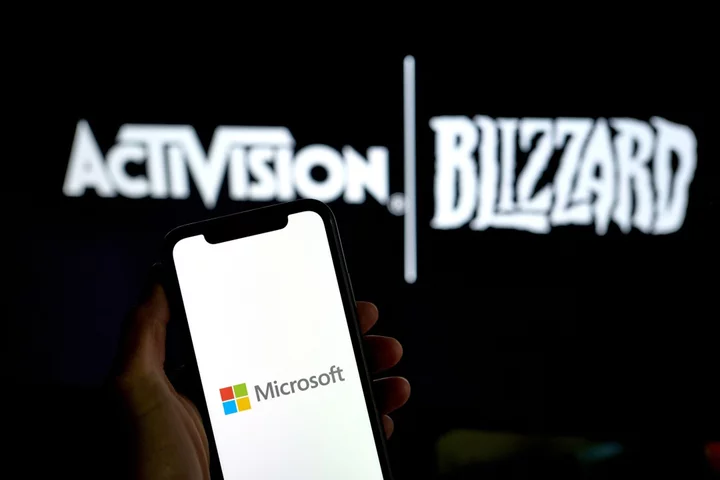
Microsoft and Activision Watch Hurdles to $69 Billion Deal Fall
Microsoft Corp. and Activision Blizzard Inc. — the video-game empire it’s seeking to take over in a $69
2023-07-17 20:59

Uncharted 2 director calls out Mission Impossible 7 for similar stunts
Bruce Straley has put the stunt scenes side by side on Twitter.
2023-07-17 20:30
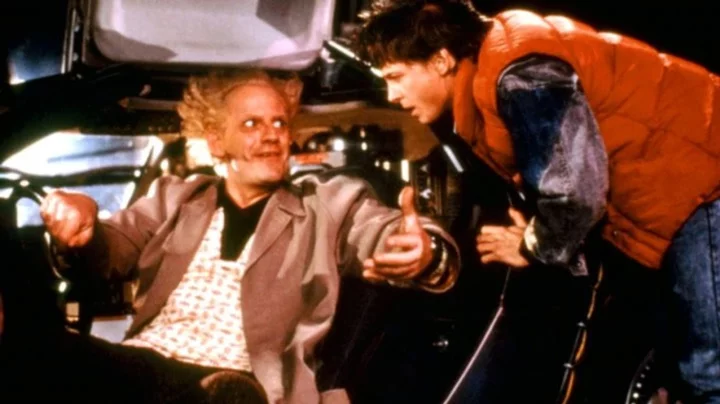
Scientists are one step closer to creating a bonafide time machine
They may not be as stylish as a DeLorean or as sturdy as a blue police box, but wormholes in space could hold the key to real-life time travel – and a team of experts think they’ve figured out how. The trio of scientists delved deep into the laws of physics and discovered that it might be possible for humans to one day zip across galaxies in a matter of seconds, or journey through time itself. Now, this is all to do with the general theory of relativity and quantum physics, so don’t expect to get your head around it too easily. However, in their paper, Valeri P. Frolov and Andrei Zelnikov of Canada’s University of Alberta, and Pavel Krtouš of Prague’s Charles University proposed that a specific kind of wormhole would “inevitably” be “transformed into a time machine” if it was subject to particular conditions. Sign up for our free Indy100 weekly newsletter For the uninitiated, wormholes can be described as spacetimes in which a “kind of tunnel exists connecting distant parts in the universe”. The main problem with them is… they don’t actually exist. At least not in any tangible way. As Drs Eric Christian and Louis Barbier put it in an explainer for NASA: “Wormholes are allowed to exist in the math of ‘General Relativity’, which is our best description of the Universe. “Assuming that general relativity is correct, there may be wormholes. But no one has any idea how they would be created, and there is no evidence for anything like a wormhole in the observed Universe.” Still, numerous experts in the field of gravitation and general relativity have spent years or even decades working on them, including Stephen Hawking in his time. For their paper, Frolov, Krtouš, and Zelnikov explored what is known as a ring wormhole, which was first described in 2016 by theoretical physicist Gary Gibbons, of Cambridge University, and Mikhail Volkov of the University of Tours. Unlike the spherical contortions of spacetime we might attribute to black holes, the ring wormhole proposed by Gibbons and Volkov connects sections of the universe (or, indeed, different universes) which are generally described as “flat”, as ScienceAlert notes. Ring-shaped masses could potentially create some pretty remarkable distortions in what would otherwise be flat spacetime if you consider how their electrical and magnetic fields might interact. And so Frolov, Krtouš, and Zelnikov decided to consider two types of such wormholes: “a wormhole connecting to flat spaces; and a wormhole connecting two distant domains in the same space”. For the latter, they concluded that if a “massive thin shell” surrounded one of the mouths of the ring wormhole, a “closed timelike curve” would form. This, as the name suggests, would mean that any travelling object (or ray of light) would come back to the exact same point whence it began. In other words, you could travel in space and time and return to your point of departure. The most exciting aspect of ring wormholes, as the authors point out is that: “For the ring wormhole an observer passing through it moves in a flat (or practically flat spacetime), while in the case of ‘standard’ (spherical) wormholes he/she should pass a domain filled with the matter violating the null energy condition.” Even without knowing what the “null energy condition” is, you can appreciate that the first option sounds a lot simpler. Now, before you start calling yourself Marty McFly or making a list of all the past mistakes you’d like to correct, we should stress that we’re a long way off seeing the creation of a bonafide, buckle-your-seatbelt time machine. But at least, thanks to the efforts of experts like Frolov, Krtouš, and Zelnikov, we’re at least one step closer to going back in the future. Have your say in our news democracy. Click the upvote icon at the top of the page to help raise this article through the indy100 rankings.
2023-07-17 20:18
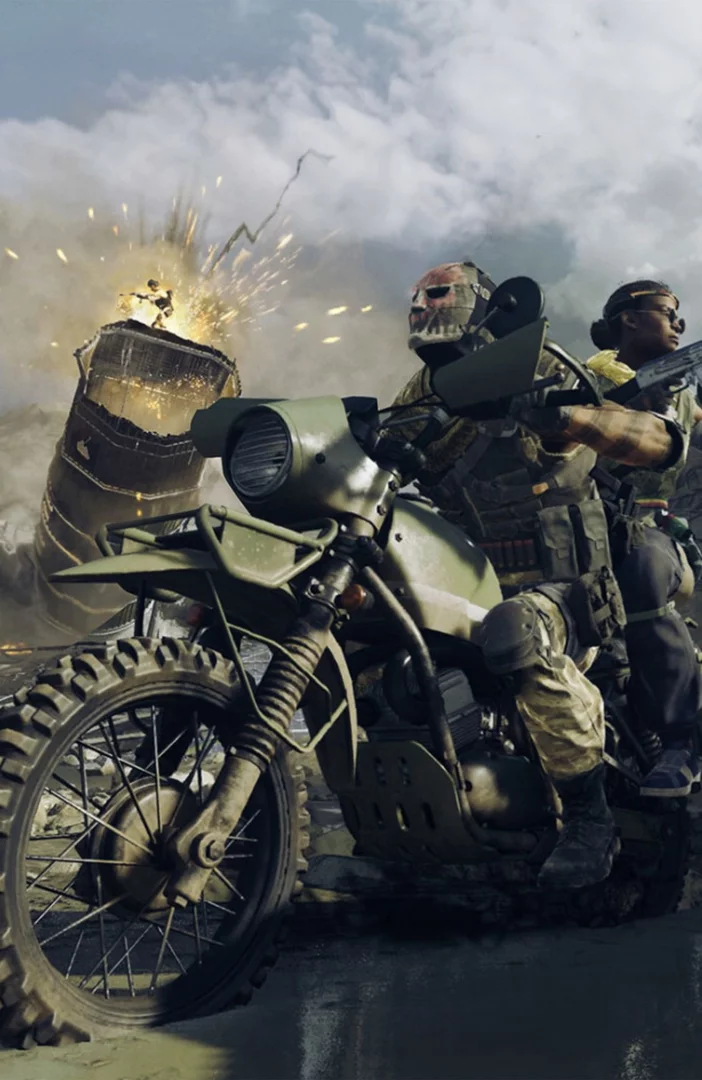
Microsoft and Sony agree to keep Call of Duty on PlayStation
'Call of Duty' will remain on the PlayStation after Microsoft's acquisition of Activision Blizzard/
2023-07-17 20:16

People living near Yamuna River in New Delhi return home as waters recede
By Adnan Abidi and Gabrielle Fonseca Johnson NEW DELHI People living near a river running through India's capital
2023-07-17 19:56

Congressmen to EPA: Don’t Trust Texas to Oversee Carbon Storage
Two Texas Congressmen are urging the Environmental Protection Agency to reject their state’s effort to oversee underground carbon
2023-07-17 19:53

‘Hostile states using organised crime gangs as proxies in the UK’
Hostile states are using organised crime gangs to carry out illegal activity in the UK, the head of the National Crime Agency has warned. NCA director-general Graeme Biggar highlighted “the emerging links between serious and organised crime and hostile states” in a speech outlining the agency’s annual assessment of crime threats to Britain. Speaking in Westminster, central London, on Monday, he said: “North Korea has for some time used cybercrime to steal funds and more recently cryptocurrency. “The Russian state has long tolerated and occasionally tasked the cybercrime groups on its territory, and had links with its oligarchs and their enablers. “And over the last year we have seen hostile states beginning to use organised crime groups – not always of the same nationality – as proxies. “It is a development we and our colleagues in MI5 and CT (counter-terrorism) policing are watching closely.” Mr Biggar said the biggest group of offenders in the UK is those who pose a sexual threat to children, estimated to be between 680,000 and 830,000 people – around 10 times the prison population. He warned that the availability of abuse images online has a radicalising effect by normalising paedophiles’ behaviour, and that viewing images, whether real or AI-generated, increases the risk of someone going on to abuse a child themselves. There are around 59,000 people involved in serious organised crime in the UK, with around £12 billion generated by criminal activities each year, and around £100 billion of dirty cash from across the globe laundered through the UK. Key threats to the UK include: – Criminals exploiting migrants travelling to the UK in small boats. The number of arrivals doubled to more than 45,000 in 2022, with gangs using “bigger, flimsier, single-use boats” and packing more people on to each craft, Mr Biggar said. – Illegal drug use that fuels a raft of other crimes including violence, theft, use of guns and modern slavery. Nearly 120 tonnes of cocaine and 40 tonnes of heroin are consumed in the UK every year, and NCA analysis of waste water suggests cocaine use is increasing by 25% in some areas. The agency wants to stop the use of synthetic opioids like fentanyl getting a hold here as they have done in the US. – Online fraud, which accounts for more than 40% of all crime. Mr Biggar said: “We assess that 75% of fraud is partially or fully committed from overseas. Generative AI is also being used to make frauds more believable, through the use of ever better deep fake videos and Chat GPT to write more compelling phishing emails.” Mr Biggar said developments in technology such as increased use of end-to-end encryption are making the agency’s work harder. He finished his speech by saying: “Law enforcement, including the NCA, needs to do more to be at the leading edge of new technology: this will require collective vision and sustained investment. “And, secondly, we need more effective strategic partnership from technology companies. “This is about responsible behaviour about designing public safety into their products alongside privacy, so that we all reap the benefits from technology, rather than suffering their consequences.” Read More Charity boss speaks out over ‘traumatic’ encounter with royal aide Ukraine war’s heaviest fight rages in east - follow live Kim Kardashian, Rylan Clark and Dalai Lama among those joining new app Threads Mastercard helping banks predict scams before money leaves customers’ accounts Art historian helps build new Assassin’s Creed game after son’s suggestion
2023-07-17 19:52
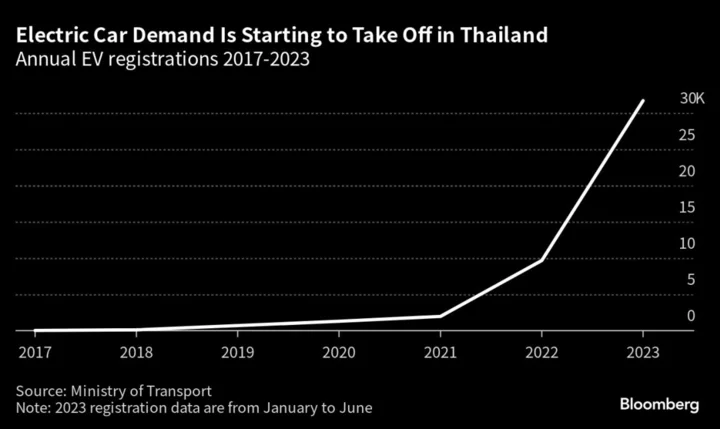
Detroit of Asia Targets Battery Makers to Stay Ahead in EV Race
Thailand has long been an auto hub, attracting global giants like Toyota Motor Corp. and Ford Motor Co.
2023-07-17 18:55
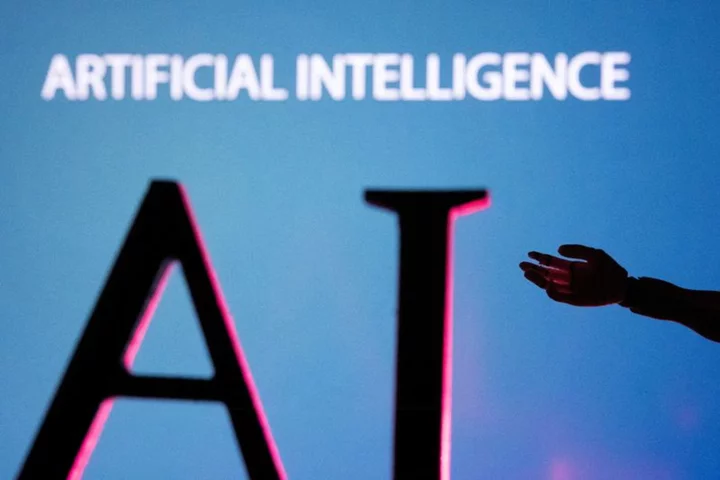
Race towards 'autonomous' AI agents grips Silicon Valley
By Anna Tong and Jeffrey Dastin Around a decade after virtual assistants like Siri and Alexa burst onto the scene,
2023-07-17 18:55
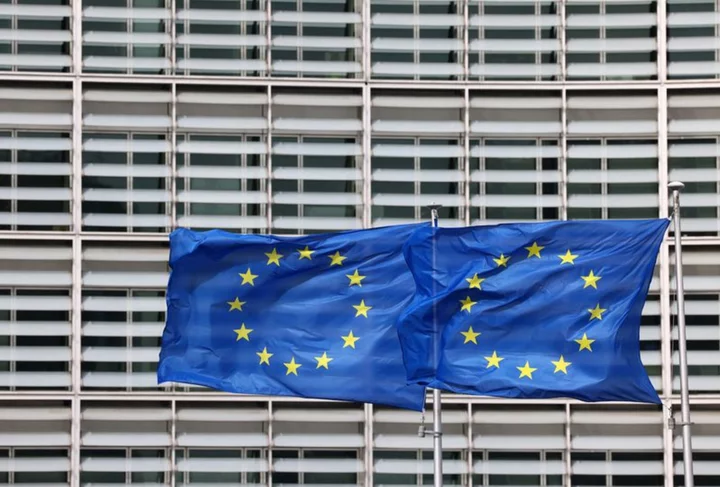
EU Commission sticks to US economist pick for senior antitrust job
By Foo Yun Chee BRUSSELS The European Commission stuck to its guns on Friday, saying it was not
2023-07-17 18:47
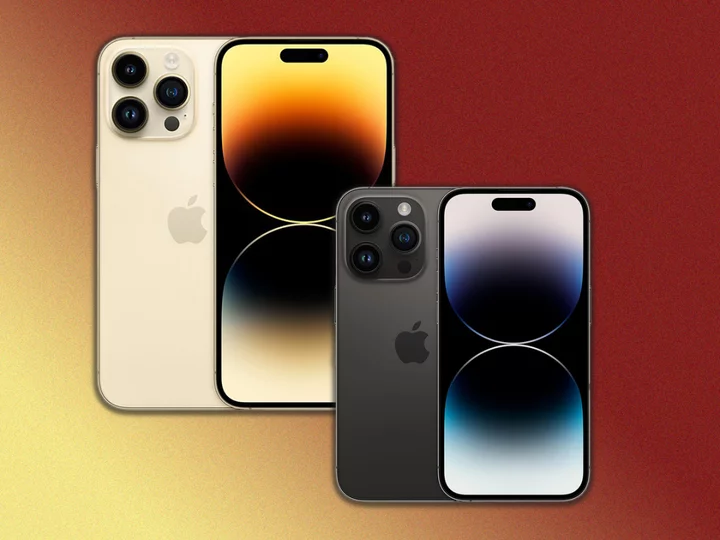
Apple’s next iPhone may include new battery technology, report suggests
Apple’s upcoming iPhone 15 may feature a new stacked battery design that is commonly used in electric vehicles, a new report has suggested. The new handset models expected to be launched in September may have their battery components stacked on top of each other, according to a seasoned leaker who goes by the username RGcloudS on Twitter. This design may lead to battery components being more tightly packaged, likely offering a higher energy density for the new iPhones. An earlier report from ITHome had suggested that these next-gen iPhones could feature as much as a 15 per cent boost to battery life. Many experts said battery packs are one area where there is an opportunity for Apple to explore more innovation. While cameras and display screens have gotten better over the years, there have only been marginal improvements in battery life across models. The development currently seen in the existing iPhone 14 battery life is also not as significant as that seen with the previous model iPhone 13. The leaker, however, pointed out that the new battery technology design for iPhone 15 remains “limited”, indicating that it may not be fully implemented as the handsets roll out for the public. There have been a number of rumours so far regarding design upgrades for the iPhone 15. Some leakers claim the new iPhone could ditch the lightning port in favour of USB-C for the first time and that Apple might remove the mechanical volume and power buttons on its handsets and replace them with solid-state ones. Rumours also suggest the iPhone 15 could feature a new chip to support Apple’s upcoming Vision Pro VR headset and allow the phone to work as part of a “more competitive ecosystem”, leaker Ming-Chi Kuo had said. This latest rumour comes on top of several other features Apple announced for its upcoming iPhone at its Worldwide Developer’s Conference last month. At the conference, the tech giant said iPhone 15 upgrades would include a range of new tools from one for journalling and AirDrop updates to live transcription in voicemail and a new standby mode to turns the iPhone into a smart display. Read More iOS 17: Apple launches beta of iPhone software update, allowing people to download new OS early Nothing Phone (2) review: A weird and wonderful mid-range Android Apple launches ‘Tap to Pay on iPhone’, letting people take payments on their device iPhone 13 pre-order: UK contract deals from Vodafone, EE, O2 and more iPhone 13 - live: UK contract deals and prices for Apple, EE and O2 Apple reveals its ‘most professional handset ever’, iPhone 13 Pro
2023-07-17 17:46
